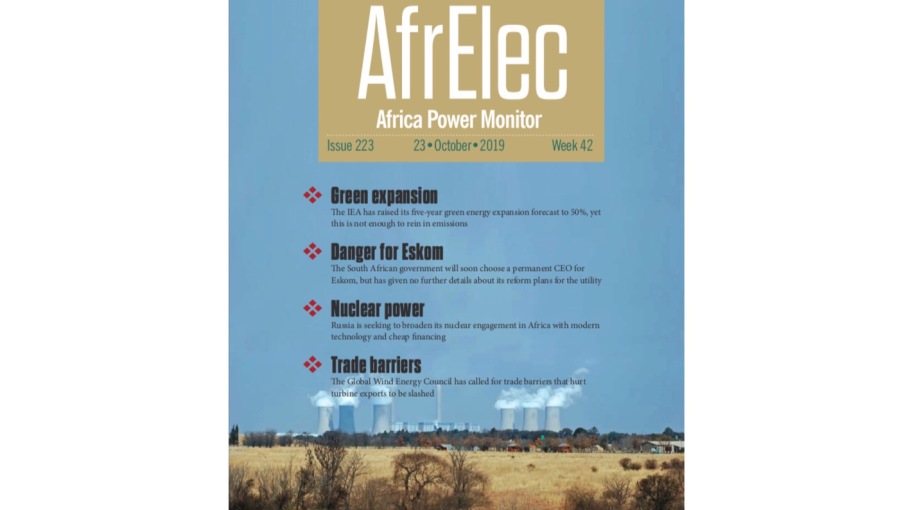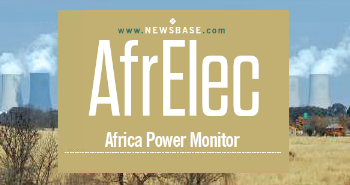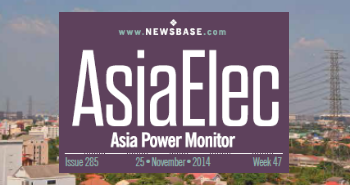AfrElec: India’s JSPL to build coal mine in southern Africa

In a move that has caught many in India and Southern Africa by surprise, in particular as the world continues to move away from coal use in the wake of COP26, Jindal Steel & Power Ltd (JSPL) has announced it will be building a new coal mine in Botswana’s remote southern Mmamabula region, south of the nation’s capital city Gaborone.
Taking advantage of Chinese-led moves at COP26 to change the ‘phasing out’ of coal to a ‘phasing down’, Botswana has so far refrained from an expected promise not to issue any more mining licences to foreign companies, and as such the project will go ahead as planned, with ground to be broken next year.
When complete the mine is expected to produce up to 4.5mn tonnes per year (tpy) of coal.
Speaking to media in Africa, JSPL's country head in Botswana, Neeraj Saxena, last week said: “Work will start next year and develop in phases over two to three years. Regional demand is increasing and the South African market has appetite for Botswana coal.”
Surveys have shown Botswana has in the region of 212bn tonnes of subsurface coal reserves, although it is at present committed to power supply agreements from regional power South Africa on its southern border, and to a lesser extent Zambia to the north.
Domestically almost all power generation in Botswana comes from fossil fuels – a number that peaked at 99.84% in the mid-2010s.
Today around 2% comes from renewable sources, although by 2040, Botswana’s government has pledged to increase this to 18%.
With just one mid-scale solar project currently operating in Botswana, and the majority of installed PV sites used for water heating in rural areas, this poses an uphill challenge at best.
Botswana’s energy supply situation has not improved noticeably in the past decade, with some in South Africa’s political circles seeing Botswana as little more than an energy-dependent neighbour.
Just two coal power facilities, near Palapye, north of Gaborone, supply the daily peak demand of 600 MW, but with the larger of the pair undergoing long-term repairs, most of Botswana’s daily power needs are satisfied by South African utility Eskom.
Earlier in 2021, three firms; JSPL’s local office, Jindal Africa, Maatla Resources, a mid-level local company, and Australia based African Energy Resources all placed bids in a tender for a new 300-MW coal power plant project to be linked to the Mmamabula field, with Jindal being touted as the favourite.
As part of a Botswana national energy policy promoted in 2016, Jindal Africa had unveiled plans to operate three surface mines in the coalfield region of Mmamabula, in addition to the aforementioned coal-fired power plant.
Bringing these goals to fruition, there is, however, increased angst against Indian intervention in national industries across southern Africa, particularly south of the border in South Africa, where for decades the lion’s share of Botswana’s power supply has come from.
Indian businesses were targeted in summer riots across South Africa, with the ruling African National Congress (ANC) said to have done little to alleviate racial tensions in the months since.
At the local level in Botswana, Motswana residents, though, are looking to benefit from the 2,000 jobs the power plant and mines are expected to bring to the landlocked nation of 2.3mn.
How, and even if, this affects the outcome regarding Jindal’s plans to combine the Mmamabula Mine and power plant expansion in Botswana remains to be seen, particularly in light of all power purchase agreements (PPAs) south of the border now requiring clearance by South Africa’s Minister of Energy.
This is a post currently held by ANC National Chairperson Gwede Mantashe, who last week said South Africa, as recipient of much of Botswana’s coal was “… committed to low-carbon emissions, even net-zero emissions” but that this must be “within the reality of the energy that guarantees national economic growth, development and industrialisation.”



Follow us online